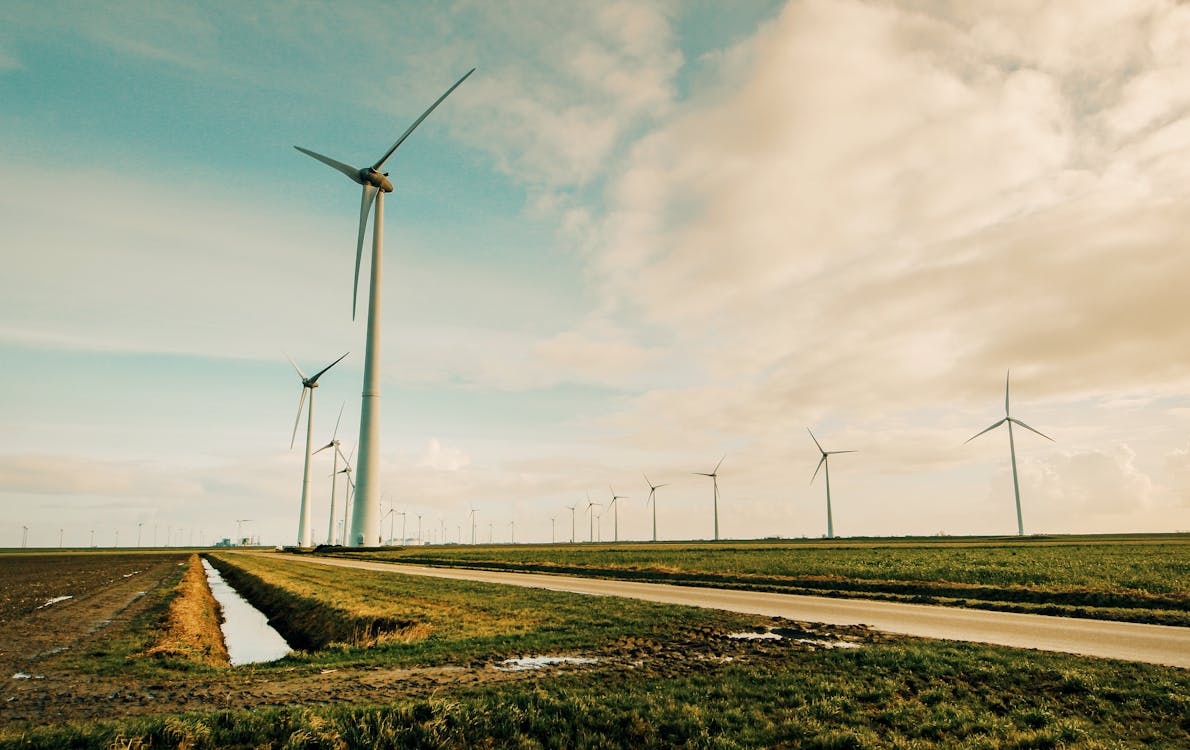Maximizing profits through energy-efficient construction is a pivotal strategy in today’s environmentally conscious market. Hard money lenders play a vital role in financing these projects, providing accessible funding solutions for real estate developers and investors. With a focus on sustainable building practices, businesses can optimize returns, reduce operational costs, and contribute to a greener, more sustainable future.
Market Analysis
Market analysis is crucial for private money lenders seeking to invest in energy-efficient properties. Thorough research enables the identification of the rising demand for sustainable homes, fostering an understanding of evolving consumer preferences. By scrutinizing market segments, lenders can pinpoint specific demographics inclined towards eco-friendly living.
This analysis allows for the identification of potential target audiences, such as environmentally conscious homebuyers or investors seeking long-term sustainable assets. Understanding these preferences helps private money lenders tailor their offerings to meet the demands of this growing market, thus increasing the likelihood of successful investments in energy-efficient properties.
Cost-Benefit Analysis
Conducting a comprehensive cost-benefit analysis is paramount for hard money lenders delving into energy-efficient construction. This analysis involves assessing the upfront expenditure associated with integrating sustainable building materials and cutting-edge technologies, allowing lenders to understand the initial financial commitments required for these eco-conscious projects.
Equally important is the evaluation of long-term savings and returns, which involves calculating the projected reduction in operational costs, such as energy consumption and maintenance expenses, over the life cycle of the property.
By weighing the initial investment costs against the potential long-term financial benefits, hard money lenders can make informed decisions, ensuring that the financial viability of energy-efficient construction aligns with their investment objectives and profitability targets. This analytical approach is pivotal in mitigating financial risks and maximizing returns in the realm of sustainable real estate ventures.
Sustainable Design Strategies
In fix-and-flip financing, the incorporation of sustainable design strategies holds considerable potential for both profitability and environmental impact. By integrating passive design elements, such as strategically positioned windows and ventilation systems, property developers can harness natural light and airflow to enhance energy efficiency and indoor comfort.
Furthermore, the conscientious use of sustainable building materials, like recycled wood and eco-friendly insulation, not only reduces the property’s carbon footprint but also appeals to environmentally conscious homebuyers, potentially increasing market value.
Embracing renewable energy sources, such as solar panels or geothermal heating systems, further amplifies the property’s sustainable profile, offering long-term energy savings and bolstering its appeal in an increasingly eco-conscious real estate market. Employing these sustainable design strategies not only aligns with contemporary environmental values but also presents lucrative opportunities for investors engaged in the domain of fix-and-flip financing, ensuring a competitive edge in the market.
Energy-Efficient Technologies

For private money lenders in real estate investing, the integration of energy-efficient technologies presents a compelling opportunity to enhance property value and attract environmentally conscious buyers. By incorporating high-efficiency HVAC systems and appliances, property developers can significantly reduce energy consumption while providing enhanced comfort and convenience for potential occupants.
Moreover, the utilization of smart home technologies for automated energy management enables seamless control and optimization of energy usage, fostering a more sustainable and cost-effective living environment. These advanced systems not only appeal to the modern homebuyer’s preference for energy-efficient amenities but also contribute to long-term operational savings, thus bolstering the overall return on investment.
By prioritizing the integration of these energy-efficient technologies, private money lenders can position themselves at the forefront of the real estate market, catering to the growing demand for sustainable and technologically advanced properties while ensuring competitive advantages and lucrative investment opportunities.
Regulatory Compliance
Compliance with local and national energy efficiency standards and building codes is imperative for private money lenders in real estate ventures. Understanding these regulations is essential to ensure that properties meet the required energy efficiency criteria, avoiding potential penalties and delays in project completion.
Moreover, strict adherence to environmental regulations and certification requirements is crucial for maintaining the sustainability credentials of the properties. By upholding these standards, private money lenders demonstrate their commitment to responsible and compliant real estate development, thereby fostering trust among stakeholders and potential buyers.
Ensuring regulatory compliance not only mitigates legal risks but also enhances the marketability of properties, appealing to environmentally conscious investors and buyers who prioritize sustainable and compliant real estate investments.
Marketing and Value Proposition
Effective marketing strategies for private lenders for home loans involve highlighting the multifaceted benefits of energy-efficient properties. By emphasizing the long-term cost savings and environmental advantages, lenders can appeal to the financial sensibilities and eco-conscious values of potential buyers.
Communicating the added value of energy efficiency in terms of enhanced comfort and sustainability further underscores the appeal of these properties, showcasing a commitment to providing not just a home but a sustainable living experience.
Emphasizing these value propositions in marketing materials and property listings can significantly elevate the perceived worth of the homes, attracting discerning buyers seeking both financial prudence and environmental responsibility. This strategic approach not only enhances the marketability of properties but also solidifies the reputation of private lenders for home loans as facilitators of sustainable and financially prudent real estate investments.
Collaboration with Industry Experts

Collaboration with industry experts is integral to the success of ventures involving fix and flip loans. Building strategic partnerships with energy consultants and sustainable construction specialists offers valuable insights into cutting-edge technologies and best practices for energy-efficient renovations.
By leveraging the expertise of these professionals, investors can make informed decisions about the most effective and sustainable upgrades, thereby enhancing the market value of the properties. Additionally, engaging with organizations that promote green building practices and certifications not only demonstrates a commitment to environmental responsibility but also enhances the credibility of the property’s sustainable features.
These collaborative efforts serve to strengthen the reputation of investors utilizing fix and flip loans as forward-thinking contributors to the promotion of energy-efficient and environmentally-conscious real estate practices.
Training and Education
In real estate investment, providing comprehensive training and education is crucial for private lenders looking to maximize the potential of energy-efficient properties. By offering specialized training for construction teams on the latest energy-efficient building techniques, lenders can ensure the seamless execution of sustainable upgrades, thereby enhancing the market value of the properties.
Simultaneously, educating homeowners on the benefits of energy-efficient features and their maintenance fosters a sense of responsibility and awareness, promoting the long-term sustainability and functionality of these properties. Empowering both construction teams and homeowners through education not only strengthens the value proposition of properties but also solidifies the position of private lenders for real estate investors as advocates for sustainable and informed real estate investments.
Monitoring and Maintenance
In sustainable real estate investments, diligent monitoring and maintenance play a critical role. Private lenders can establish protocols for regular monitoring of energy consumption and performance, enabling the identification of potential inefficiencies and the implementation of timely improvements.
By ensuring continuous efficiency of energy-saving technologies through dedicated maintenance services, lenders can guarantee the longevity and optimal functionality of these features, thereby preserving the value and sustainability of the properties.
Proactive monitoring and meticulous maintenance not only enhance the marketability of the properties but also reinforce the commitment of private lenders to fostering sustainable and energy-efficient real estate investments, solidifying their reputation as stakeholders dedicated to long-term environmental and financial responsibility.
By harnessing the potential of energy-efficient construction, your real estate investments can yield substantial returns while promoting sustainability. At Insula Capital Group, we facilitate this journey with our diverse financial programs, including fix and flip loans, private money lenders for real estate, and hard money construction loans. Our offerings extend to a comprehensive multi-family mixed-use residential rental program and support for new construction projects. Maximize your profits with our tailored financing solutions. Get in touch with us today to explore how we can elevate your real estate ventures.




